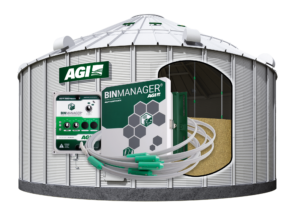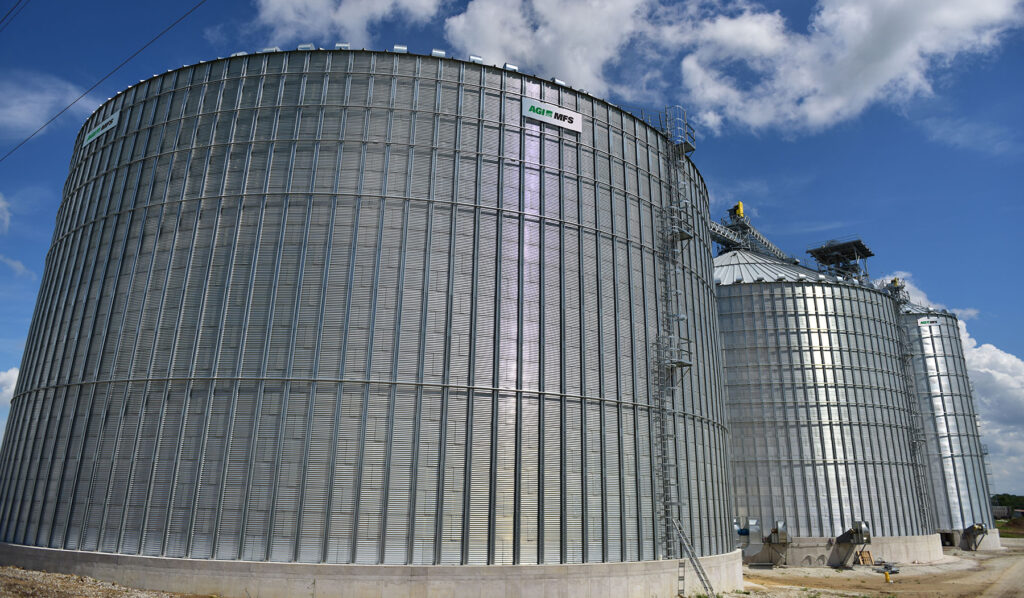As the temperatures drop, managing stored grain effectively becomes essential to maintaining its quality and value. Cold weather presents unique challenges, but with the right strategies and tools, you can ensure your grain remains in peak condition throughout the winter months. Check out the list below to gain some insight or just for a refresher on storing grain during the winter to keep it in condition.
1. Understand the Impact of Temperature on Grain Condition
Cold weather affects grain storage in several ways. Grain may cool unevenly within the bin, leading to condensation and the risk of spoilage. Proper grain management during this season focuses on maintaining uniform temperature and moisture levels to prevent problems like crusting or mold growth.
2. Monitor Grain Regularly
 The cornerstone of effective grain management in winter is consistent monitoring. Using advanced grain monitoring equipment such as temperature and moisture sensors can help you detect early signs of issues. Systems like BinManager, employ grain bin sensors to provide real-time insights, enabling you to make timely adjustments.
The cornerstone of effective grain management in winter is consistent monitoring. Using advanced grain monitoring equipment such as temperature and moisture sensors can help you detect early signs of issues. Systems like BinManager, employ grain bin sensors to provide real-time insights, enabling you to make timely adjustments.
3. Control Aeration Systems Effectively
Aeration plays a crucial role in managing stored grain during cold weather. Follow these tips for effective aeration:
- Cool grain gradually: Use aeration systems to lower the grain temperature in stages, aligning with external conditions.
- Equalize temperature: Run fans periodically to even out the temperature inside the bin and reduce condensation risks.
- Turn off fans at the right time: When the grain temperature reaches 25-35°F, turn off aeration systems to avoid overcooling.
4. Inspect and Seal Your Storage Bins
Ensure your Valley View storage bins are ready for winter by inspecting for any leaks or damage. Proper sealing prevents moisture and pests from compromising your stored grain. Consider upgrades like insulated bin covers or improved weatherproofing if needed.
5. Keep an Eye on Moisture Levels
Grain naturally respires, even in cold weather, which can lead to moisture migration within the bin. Proper moisture management is essential to prevent spoilage:
- Use grain bin sensors to measure moisture content across different layers.
- Adjust aeration settings or redistribute grain if moisture levels vary significantly.
6. Have a Backup Plan
Weather events can disrupt power supply or damage equipment. A proactive approach includes maintaining backup systems or manual methods to manage grain conditions temporarily. Your grain management strategy should also include contingency plans for sudden cold snaps or unexpected equipment issues.
7. Leverage Expertise
If you’re uncertain about the best practices for your setup, consult the professionals at Valley View Agri-Systems. We offer a full suite of services and tools, including customized grain monitoring equipment solutions, to help you maintain the quality of your stored grain all winter long.
At Valley View Agri-Systems, we understand the complexities of grain storage and the importance of proactive grain management. From advanced grain bin sensors to expert advice tailored to your storage setup, our solutions are designed to simplify your operations and maximize your profitability. Trust Valley View to keep your grain in optimal condition, no matter the season.
Cold weather doesn’t have to compromise the quality of your stored grain. By implementing these best practices and investing in modern tools like grain monitoring equipment, you can navigate winter with confidence. For tailored grain management solutions, contact Valley View Agri-Systems today.
Let us help you safeguard your grain for the season ahead.

